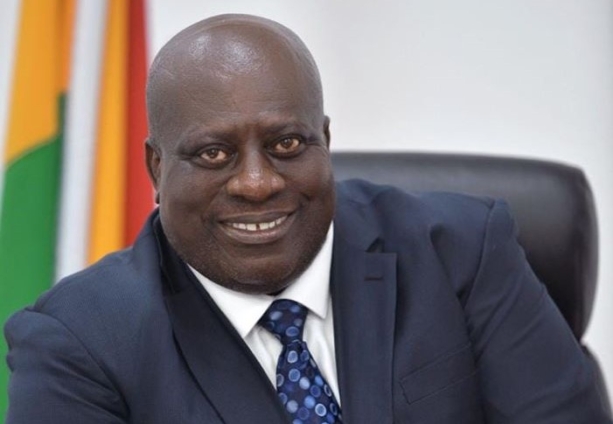A former Chief Executive Officer for the Ghana Grid Company (GRIDCo), Jonathan Baah, says diversifying Ghana’s energy sources is one of the panaceas to the country's energy sector debts.
He said diversifying Ghana’s energy mix to include more renewable energy sources than thermal sources could reduce the cost of power generation, which is one of the major drivers of energy sector debt.
“Diversifying our energy mix to include more renewable energy sources such as solar, wind, and hydro can reduce reliance on expensive thermal power and enhance energy security. Investments in renewable energy should be accompanied by incentives and policies that can encourage private sector participation in generating electricity for the country,” he said.
Thermal generation accounts for the largest share of Ghana’s power generation, representing 66 per cent of Ghana’s thermal power generation, which is fuelled largely by natural gas but occasionally with light crude oil and diesel and 33 per cent of hydro.
The former CEO of GRIDCo said this during a training session organised by Energy News Africa to train journalists on the operations of the key players in the energy sector value chain.
Facilitators from the various departments and agencies in the energy sector took turns to educate the journalists on their duties and challenges.
Ing. Baah said delayed payments from government institutions and the high cost of producing power by the power generator also worsened the debt situation in the energy sector.
These challenges, he said, could be addressed through the implementation of cost-reflective tariffs that reflected the cost of the power generation and an effective payment schedule with the power generators, although such measures might face political challenges.
According to Edward Bawa, a member of the Energy Committee in parliament, the power sector is currently facing a $1.5 billion debt that the government is unable to pay.
Mr. Baah noted that technical losses through distribution losses by the Electricity Company of Ghana also occasioned the debt situation in the energy sector.
He said most of the infrastructure used in the distribution of electricity was old and inefficient, as it was installed as late as the 1960s.
He, however, advised the government to pursue strategic reforms and investments through enhancing and upgrading infrastructure and improving billing and metering systems to address technical and distribution losses.
Mr Baah also said effective management of the energy sector required strong government structures.
He emphasised that the strong government structure included a transparent regulatory framework and accountability mechanisms.
Latest Stories
-
PassionAir assures passengers after Kumasi–Accra flight encounters turbulence
36 minutes -
Fatherhood Beyond Finances: Two drivers inspire a rethink on presence, bonding and recognition
51 minutes -
President Mahama urges protection of fuel price gains amid Middle East tensions
1 hour -
Republic of Rogues: Where Thieves Have Heads and the System Has None
2 hours -
Musah Mohammed donates jerseys and footballs to youth teams in Nkawkaw
3 hours -
Omane Boamah urges youth to persevere, recounts dramatic admission struggle at POJOSS
3 hours -
Minority unhappy over suspension of fuel levy, demands full repeal
3 hours -
Helicopter carrying Hindu pilgrims crashes in India, killing seven people
3 hours -
Council of State member urges Ghana to localise global solutions for youth employment
3 hours -
CAS overturns FIFA ruling and awards Right to Dream development fees from Ernest Nuamah’s transfer
4 hours -
Hitz Praise Zone: Nii Noi launches new gospel show on Hitz FM
4 hours -
BOAD reaffirms commitment to energy transition and sustainable agriculture in West Africa
5 hours -
10 kinds of women who have denied men the joy of fatherhood
6 hours -
A father’s hurdles caring for son with Sickle Cell disease – John Dzido shares a fraction
6 hours -
GF Awards 2025: Thomas Partey wins Player of the Year for the third time
6 hours

